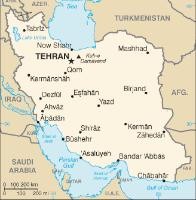The Bush administration's current suspicion that Iran plans to manufacture nuclear weapons is not the first time that Washington has faced such intentions from Tehran, but earlier the circumstances were different. In the late 1970s, U.S. intelligence learned that Iran's ruler, Shah Mohammed Reza Pahlavi, had secretly set up a nuclear weapons development program. According to the Washington-based Center for Arms Control and Nonproliferation, between 1974 and 1978 the Iranians were carrying out "laboratory experiments in which plutonium was extracted from spent [nuclear] fuel using chemical agents." Plutonium is an ingredient for nuclear weapons. The difference between then and now was that (1) the shah, who ruled from 1941 to 1979 (except for a brief period in 1953), was a key American ally in the Middle East, whereas under the ruling Shiite ayatollahs, Iran is considered very much an adversary; (2) anti-Israel statements from Iranian President Mahmoud Ahmadinejad leave little doubt where any new nuclear missiles would be pointed, but in the 1970s contemporary press reports said Iran planned to purchase Israeli surface-to-surface Jericho missiles that could be equipped with nuclear warheads; and (3) the shah's Iran had initiated its nuclear energy program in 1957 with American help and encouragement.
Iran’s Nuclear Program Has a Long History

